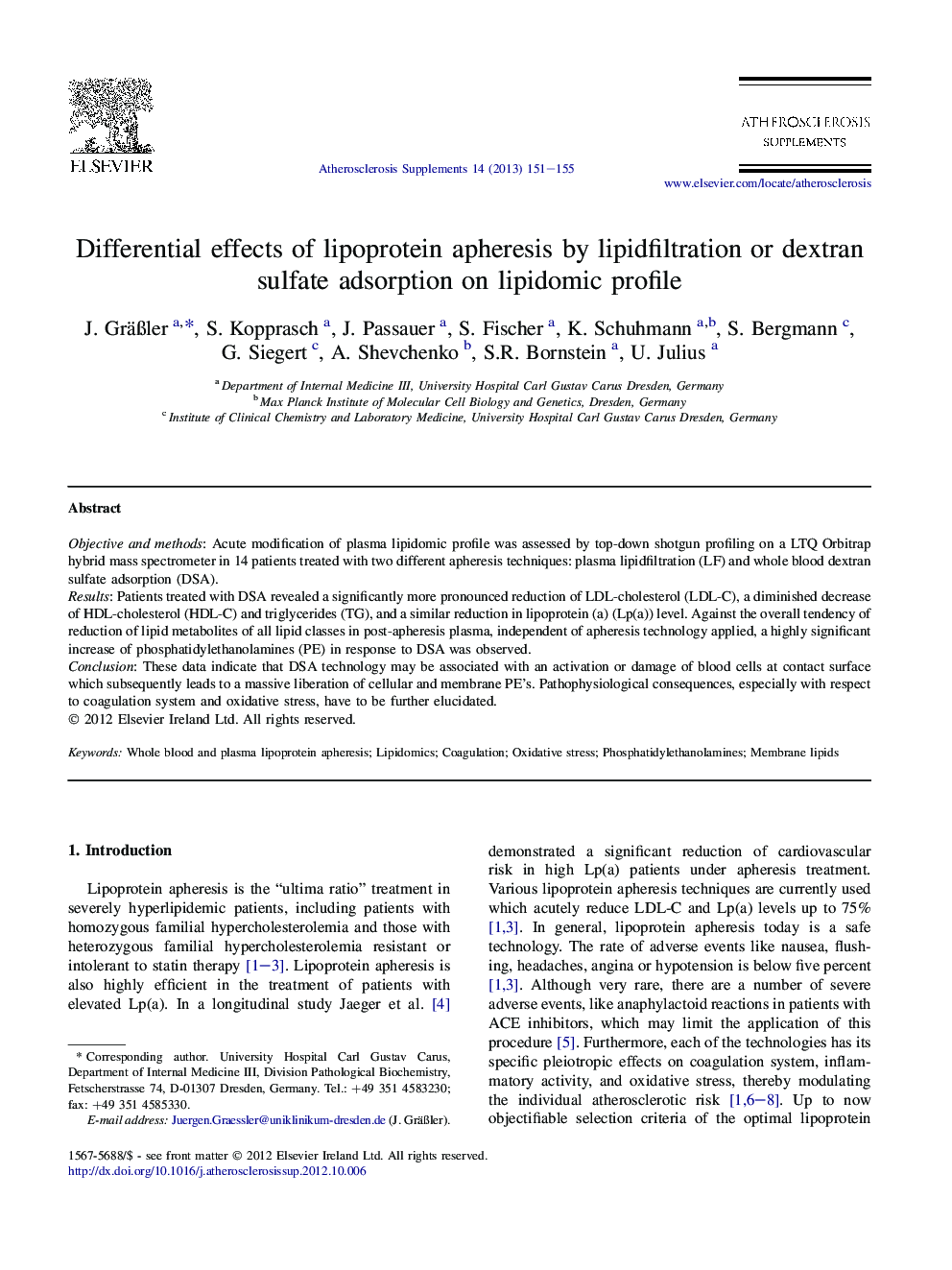| Article ID | Journal | Published Year | Pages | File Type |
|---|---|---|---|---|
| 2895648 | Atherosclerosis Supplements | 2013 | 5 Pages |
Objective and methodsAcute modification of plasma lipidomic profile was assessed by top-down shotgun profiling on a LTQ Orbitrap hybrid mass spectrometer in 14 patients treated with two different apheresis techniques: plasma lipidfiltration (LF) and whole blood dextran sulfate adsorption (DSA).ResultsPatients treated with DSA revealed a significantly more pronounced reduction of LDL-cholesterol (LDL-C), a diminished decrease of HDL-cholesterol (HDL-C) and triglycerides (TG), and a similar reduction in lipoprotein (a) (Lp(a)) level. Against the overall tendency of reduction of lipid metabolites of all lipid classes in post-apheresis plasma, independent of apheresis technology applied, a highly significant increase of phosphatidylethanolamines (PE) in response to DSA was observed.ConclusionThese data indicate that DSA technology may be associated with an activation or damage of blood cells at contact surface which subsequently leads to a massive liberation of cellular and membrane PE's. Pathophysiological consequences, especially with respect to coagulation system and oxidative stress, have to be further elucidated.
